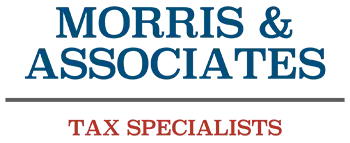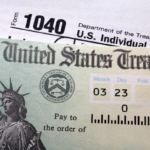If you owe money to the IRS, you can count on letters from the agency showing up in your mailbox. But once you receive IRS Letter 3174—it’s time to take note—as this is the last letter you’ll receive before your bank accounts, wages or property is levied or seized.
The last thing you should do is ignore this letter if you receive it. Read on to learn what this letter means and how to respond to it.
What is IRS Letter 3174?
IRS Letter 3174 is a New Warning of Enforcement and sent after a Notice of Intent to Levy—if sent at all. The IRS is not required to send a Letter 3174 but does so as a courtesy to taxpayers.
Once the IRS issues a Notice of Levy and has yet to enforce it for 180 days or more, they typically will warn you first before enforcing any action. Sometimes the IRS will give notice intended by Letter 3174 verbally via a Revenue Officer. If you receive an IRS Letter 3174 in the mail or receive a verbal notice, they will usually wait at least 15 days before levying your bank accounts or seizing property. But once again, it’s in your best interest to take this notice seriously. You can guarantee the IRS is taking it seriously and will take action.
What to Do With a Letter 3174
It’s important to respond to the IRS within 15 days of the date of a Letter 3174. Note that your case doesn’t need to be resolved within 15 days; you just need to make contact.
Your tax problems will not magically disappear. But dealing with the IRS can be stressful. That’s where a qualified professional representing you comes in handy. You don’t have to face this problem alone
As an Enrolled Agent, I have over 30 years’ experience dealing directly with the IRS to help my clients resolve their tax issues.
The first thing I would recommend doing after responding back to the IRS is to file all your tax returns. If your returns were already filed, I would want to review your returns to ensure they were filed correctly. You would be amazed how often I have discovered errors, which can often lead to less tax owed.
Afterward, if money is still owed to the IRS, we can then explore ways to reduce the amount of tax debt you’re liable for and create a suitable payment plan.
What to Do if You Can’t Pay the Full Amount
It’s okay if you can’t pay the full amount you owe to the IRS right way. We can work with the IRS to either establish an installment agreement or place a temporary pause on collections due to a financial hardship. Below are three common agreements:
- Installment Agreements (IA): You can set up an installment agreement to pay your balance over time via payments. Remember that fees, interest, and penalties will still apply.
- Offer in Compromise (OIC): If you’re undergoing a financial hardship, you can submit an offer for less that what’s owed, which can still be paid off in payments. Of course, you will need to prove the submitted amount is the most you will be able to pay.
- Non-Collectible Status (CNC): If you’re dealing with a substantial (and verifiable) hardship, the IRS may place you on a non-collectible status until your financial situation improves.
What’s important to know is that by coming to an agreement with the IRS, we can stop the seizing of property, levying of your back accounts, or wage garnishments. That’s why it’s extremely important we begin a dialogue with the IRS as soon as you receive an IRS Letter 3174 or any notice of intent by the IRS for that matter.
What to Do Now
Contact us immediately if you’re receiving notices from the IRS. I assure you they will not just go away nor will your tax problems. We have the knowledge and experience to fight on your behalf to provide a better outcome than if you were to go it alone.
Morris and Associates are experts when it comes to helping individuals and companies find tax relief in Georgia but can help no matter where you live or whatever tax questions you have. Contact us to help with your taxes and possibly even reduce the amount that you owe.







